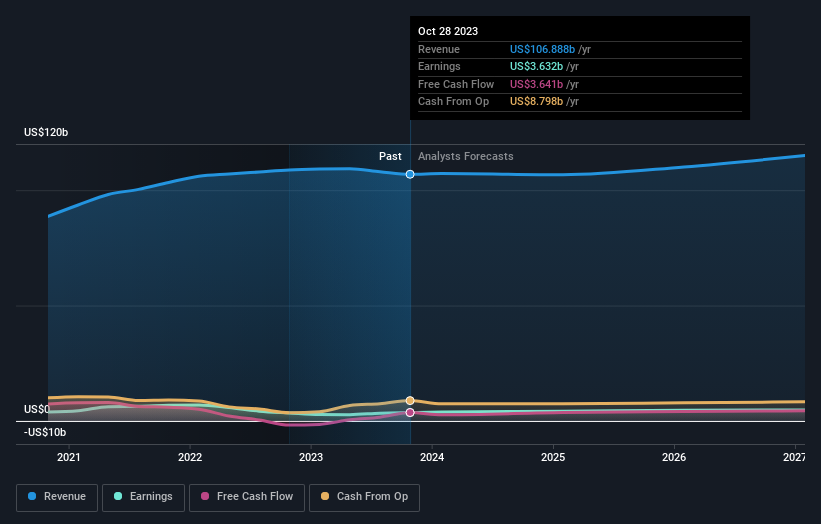- United States
- /
- Food and Staples Retail
- /
- NYSE:TGT
Is It Too Late To Consider Buying Target Corporation (NYSE:TGT)?

Target Corporation (NYSE:TGT) saw a significant share price rise of 37% in the past couple of months on the NYSE. The recent rally in share prices has nudged the company in the right direction, though it still falls short of its yearly peak. As a large-cap stock with high coverage by analysts, you could assume any recent changes in the company’s outlook is already priced into the stock. However, what if the stock is still a bargain? Today we will analyse the most recent data on Target’s outlook and valuation to see if the opportunity still exists.
See our latest analysis for Target
What's The Opportunity In Target?
The share price seems sensible at the moment according to our price multiple model, where we compare the company's price-to-earnings ratio to the industry average. We’ve used the price-to-earnings ratio in this instance because there’s not enough visibility to forecast its cash flows. The stock’s ratio of 18.63x is currently trading slightly below its industry peers’ ratio of 20.76x, which means if you buy Target today, you’d be paying a reasonable price for it. And if you believe Target should be trading in this range, then there isn’t much room for the share price to grow beyond the levels of other industry peers over the long-term. So, is there another chance to buy low in the future? Given that Target’s share is fairly volatile (i.e. its price movements are magnified relative to the rest of the market) this could mean the price can sink lower, giving us an opportunity to buy later on. This is based on its high beta, which is a good indicator for share price volatility.
What kind of growth will Target generate?

Future outlook is an important aspect when you’re looking at buying a stock, especially if you are an investor looking for growth in your portfolio. Buying a great company with a robust outlook at a cheap price is always a good investment, so let’s also take a look at the company's future expectations. Target's earnings over the next few years are expected to increase by 30%, indicating a highly optimistic future ahead. This should lead to more robust cash flows, feeding into a higher share value.
What This Means For You
Are you a shareholder? TGT’s optimistic future growth appears to have been factored into the current share price, with shares trading around industry price multiples. However, there are also other important factors which we haven’t considered today, such as the financial strength of the company. Have these factors changed since the last time you looked at TGT? Will you have enough confidence to invest in the company should the price drop below the industry PE ratio?
Are you a potential investor? If you’ve been keeping an eye on TGT, now may not be the most optimal time to buy, given it is trading around industry price multiples. However, the positive outlook is encouraging for TGT, which means it’s worth diving deeper into other factors such as the strength of its balance sheet, in order to take advantage of the next price drop.
If you want to dive deeper into Target, you'd also look into what risks it is currently facing. For example, we've discovered 2 warning signs that you should run your eye over to get a better picture of Target.
If you are no longer interested in Target, you can use our free platform to see our list of over 50 other stocks with a high growth potential.
Valuation is complex, but we're here to simplify it.
Discover if Target might be undervalued or overvalued with our detailed analysis, featuring fair value estimates, potential risks, dividends, insider trades, and its financial condition.
Access Free AnalysisHave feedback on this article? Concerned about the content? Get in touch with us directly. Alternatively, email editorial-team (at) simplywallst.com.
This article by Simply Wall St is general in nature. We provide commentary based on historical data and analyst forecasts only using an unbiased methodology and our articles are not intended to be financial advice. It does not constitute a recommendation to buy or sell any stock, and does not take account of your objectives, or your financial situation. We aim to bring you long-term focused analysis driven by fundamental data. Note that our analysis may not factor in the latest price-sensitive company announcements or qualitative material. Simply Wall St has no position in any stocks mentioned.
About NYSE:TGT
Undervalued established dividend payer.

